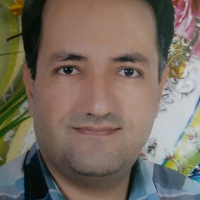Comparison of the Effectiveness of Exploratory Group Training and Conceptual Learning in Science Lesson on the Academic Self-Efficacy of Fifth Grade Male Students
The aim of the present study was to compare the effectiveness of group exploratory and conceptual learning in science lessons on the academic self-efficacy of male students.
The current research was applied in terms of its purpose and in terms of its implementation, it was a semi-experimental research with a pre-test-post-test-follow-up design with a control group. The statistical population of this research was the fifth grade male students of Kiyar city in the academic year of 2020-21. The research sample consisted of 75 male students in three experimental groups of exploration, concept learning and control (25 people in each group) who were selected by multi-stage cluster random sampling from 3 schools and 3 classes. The research tool was the self-efficacy questionnaire of Jenkins and Morgan (1999) and the intervention was the method of exploratory group training and concept learning group training for 10 sessions (each session 45 minutes) which was implemented for both experimental groups. For data analysis, inferential statistical methods (repeated measurement analysis and Benferroni post hoc test) were used with Spss24 software.
The results showed that both exploratory group training and conceptual learning increased academic self-efficacy scores compared to the control group. But there was no significant difference between the average scores of exploratory group training and conceptual learning. In other words, both methods of exploratory group training and concept learning group training equally increased academic self-efficacy scores (P<0.05).
Based on the findings, it can be concluded that the group teaching of exploration and conceptual learning increases the academic self-efficacy of students in the science course. Therefore, lesson planners can pay more attention to these methods and also elementary school teachers can use these educational methods in teaching science lessons to better understand students and their academic self-efficacy.
-
Modeling marriage orientation based on psychological capital and premarital relationship attitudes with the mediation of family friendship among single students
Faezeh Gavanji, *, Ahmad Ghazanfari
Journal of Psychological Sciences, -
Structural Pattern of Academic Engagement based on Basic Psychological Needs: mediator role of Intrinsic Value of the task
Elham Farsimadan, *, Ahmad Ghazanfari, Maryam Cherami
Achievements of Clinical Psychology,



